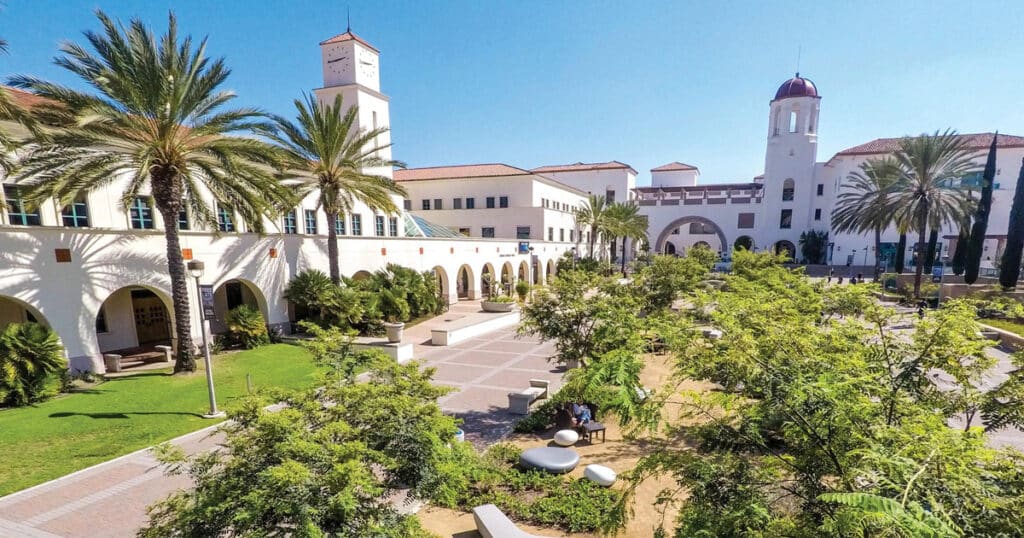
Whites Need Not Apply: University Journalism Internships for Minorities Only At San Diego State
Students hoping to score journalism internships at San Diego State University in California are apparently out of luck — if they’re white.
The school’s journalism school is promoting online internships only for minorities, according to an Instagram page associated with SDSU’s journalism and Media Studies programs. An advertisement posted on the page invited students to apply to a “Multicultural Advertising Intern program” that was being offered by the 4As Foundation in New York, an outreach effort established in 1997 with the intent of promoting a greater level of diversity in advertising and media agencies.
“The 4A’s Foundation’s Multicultural Advertising Intern Program is a highly intensive fellowship that provides diverse students with the opportunity to work in the advertising, communications and marketing industries,” the post said.
The advertisement indicates that to be considered for the program, a student must be a U.S. citizen or permanent resident, have a preferred GPA of 3.0 and “Must Identify as a BIPOC,” which, in contemporary parlance, means Black, indigenous and person of color.
The 4A’s Foundation page for the internship says that applicants “must identify as: Asian/Asian American, Native Hawaiian or Pacific Islander, Hispanic/Latinx, Black/African American, American Indian or Alaska Native, Multiracial or Multiethnic [Hispanic and Black]. No mention of Jews, as well as whites, even though those of Jewish faith represent an estimated 2.4 percent of the United States population. Jews don’t count as a minority in formulas used by government and academics to determine diversity.
Of course, the racial discrimination of SDSU’s journalism internship program is in direct violation of the federal 1964 Civil Rights Act.
The criteria for awarding the internships is illegal discrimination against whites, confirmed Mark Perry, a retired University of Michigan economics professor, who’s taken on as his mission to file complaints with the United States Department of Education about campus programs that are for minorities or women only.
Perry noted to the California Globe it’s illegal for a university that accepts Federal financial assistance, such as Pell grants, Federally insured student loans and other monies to advertise and promote external, third-party programs including scholarships, fellowships and internships that discriminate on the bases of sex — in violation of Title IX — or on the basis of race, color and national origin — in violation of Title VI of the 1964 Civil Rights Act.
Perry explained the SDSU Instagram ad follows a typical approach, where such external third party discriminatory programs are often recommended through a school website or emails to students.
Perry said racially exclusionary programs — Black-only/BIPOC-only initiatives — have proliferated on campuses in the wake of racial unrest prompted by the May 2020 death of George Floyd.
But Floyd’s death merely accelerated the trend of self-segregation on college campuses, Perry further noted.
For instance, Chapman University in Orange, California has held separate graduation for students based on such criteria as skin color and sexual orientation for decades.
As well, a 2019 report issued by the National Association of Scholars, which works to advance academic freedom on college campuses, cited nearly 200 colleges and universities that offer segregated events and activities in efforts to create more welcoming environments for minorities.
In early 2022, an off-campus house run by University of California at Berkeley students for “persons of color” banned white people from common areas in the house. Then, a few months later, the black student union at the University of California at Santa Barbara held a screening of the new Black Panther movie but asked whites not to attend.
At the invitation of University of Chicago professor Dorian Abbot, Perry wrote a piece about how standards need to be better enforced to fight the current level of discrimination in higher education — for the sake of social justice. He posted the piece at the Heterodox STEM Substack website.
“Higher education has a major civil rights problem, and it’s so widespread that it’s nothing short of systemic and structural,” Perry wrote in the opening of his piece. “The discrimination on the basis of sex and race that takes place on almost every college campus in America is not only illegal according to federal civil rights laws, but it’s highly unethical, unprincipled, and corrupt.
“It’s been going on for decades,” Perry further wrote, “but the violations of Title IX’s prohibition of sex discrimination and Title VI’s prohibition of discrimination on the basis of race, color, and national origin have increased in recent years, despite the ongoing efforts of myself and others to challenge the systemic sexism and racism that exists in higher education today.”
Perry believes the time has come for “a ‘call to arms’ for a coordinated national effort to expose and challenge the illegal violations of Title IX and Title VI that exist at most colleges and universities.”



